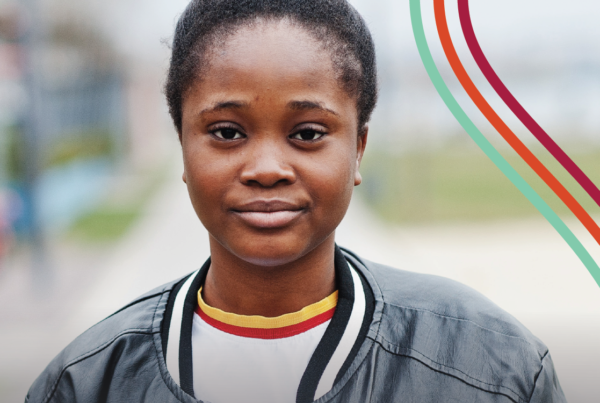With the announced hard-lockdown in March 2020, and as with most other non-essential activities, all fieldwork at Statistics South Africa (StatsSA) was shutdown. However, researchers at RESEP were quick to realise that rapidly updated, accurate information on key outcomes such as unemployment, household income, child hunger and access to government grants would be of vital importance for sound decision making during a global pandemic. To this end, a panel survey, the National Income Dynamics Study – Coronavirus Rapid Mobile Survey (NIDS-CRAM), was initiated. RESEP researchers quickly approached a number of government institutions to gather support, including StatsSA, Treasury, the Department of Health, the Department of Basic Education and the National Planning Commission (NPC), as well as formed core partnerships with the Department of Planning, Monitoring and Evaluation (DPME) within Presidency and the Southern Africa Labour and Development Research Unit (SALDRU) at UCT.
Two of the biggest challenges of devising this panel survey were to arrive at a nationally representative sample of respondents, and to avoid face-to-face interactions. In meeting the first, it was decidedly useful to build upon an existing sampling frame of respondents from NIDS (the National Income Dynamic Study), a household panel survey of five waves run by SALDRU between 2008 and 2017 and supported by the DPME; while for the second, a telephonic survey was devised and agreed upon. However, an unfortunate and unavoidable drawback with this approach is that, In order to maintain repeat respondent participant, telephonic questionnaires are purposefully limited in duration.
Financial support for NIDS-CRAM is provided by the Allan & Gill Gray Philanthropy, FEM Education Foundation, and the Michael & Susan Dell Foundation. RESEP supplies operational staff to the project while data collection and quality control is in the domain of SALDRU. The project’s co-principal investigators are Nic Spaull (Economics SU, RESEP and Funda Wande) and Reza Daniels from SALDRU. RESEP head and NRF Chair in the Economics of Social Policy, Servaas van der Berg, serves on the Steering Committee with Ingrid Woolard, Dean of the EMS Faculty at SU. Team leads and co-investigators—involved in five working groups of Sampling, Labour and Firms, Social Welfare, Health & COVID-19, and Data Collection/Quality — include Ronelle Burger (SU, RESEP), Servaas van der Berg, Rulof Burger (SU, RESEP), Nwabisa Makaluza (SU, RESEP, Funda Wande), David Carel (SU), Dori Posel (Wits) and Vimal Ranchhod (UCT). Together, Gabrielle Wills and Bokang Mpeta coordinated questionnaire design, Nwabisa Makaluza coordinated translation of the questionnaire into eleven languages, and more than a dozen RESEP members and associates have participated in the research that now involves over 30 researchers from at least six South African universities.
Data for the first wave was collected in May and June, data for the second wave in July and August, and for the third wave, November and December 2020. Two waves are also planned for 2021. All data collected is made available for download on the DataFirst Open Data Portal. The research has generated significant policy engagement and media interest. For instance, between July and October, almost 700 media clips (print, broadcast or online publications) were generated, and reached an audience of 124 million. Results are discussed with policy makers before their public release. The surveys and research have influenced government decisions in a number of areas, including social grant roll-out, provision of school meals for children while schools were closed, as well as attempts to feed the hungry.
Register here for the upcoming Wave 3 launch.
RESEP Research so far produced using NIDS-CRAM data:
Wave 2:
- Navigating COVID in the postlockdown period: Shifting risk perceptions and compliance with preventative measures
- The gendered effects of the ongoing lockdown and school closures in South Africa: Evidence from NIDS-CRAM Waves 1 and 2
- Navigating COVID in the post lockdown period: Shifting risk perceptions and compliance with preventative measures
- Examining the unintended consequences of the COVID-19 pandemic on public sector health facility visits: The first 150 days
Wave 1:
- Navigating COVID in the post lockdown period: Shifting risk perceptions and compliance with preventative measures
- Household resource flows and food poverty during South Africa’s lockdown: Short-term policy implications for three channels of social protection.
- The impact of the Coronavirus and lockdown on children’s welfare in South Africa







